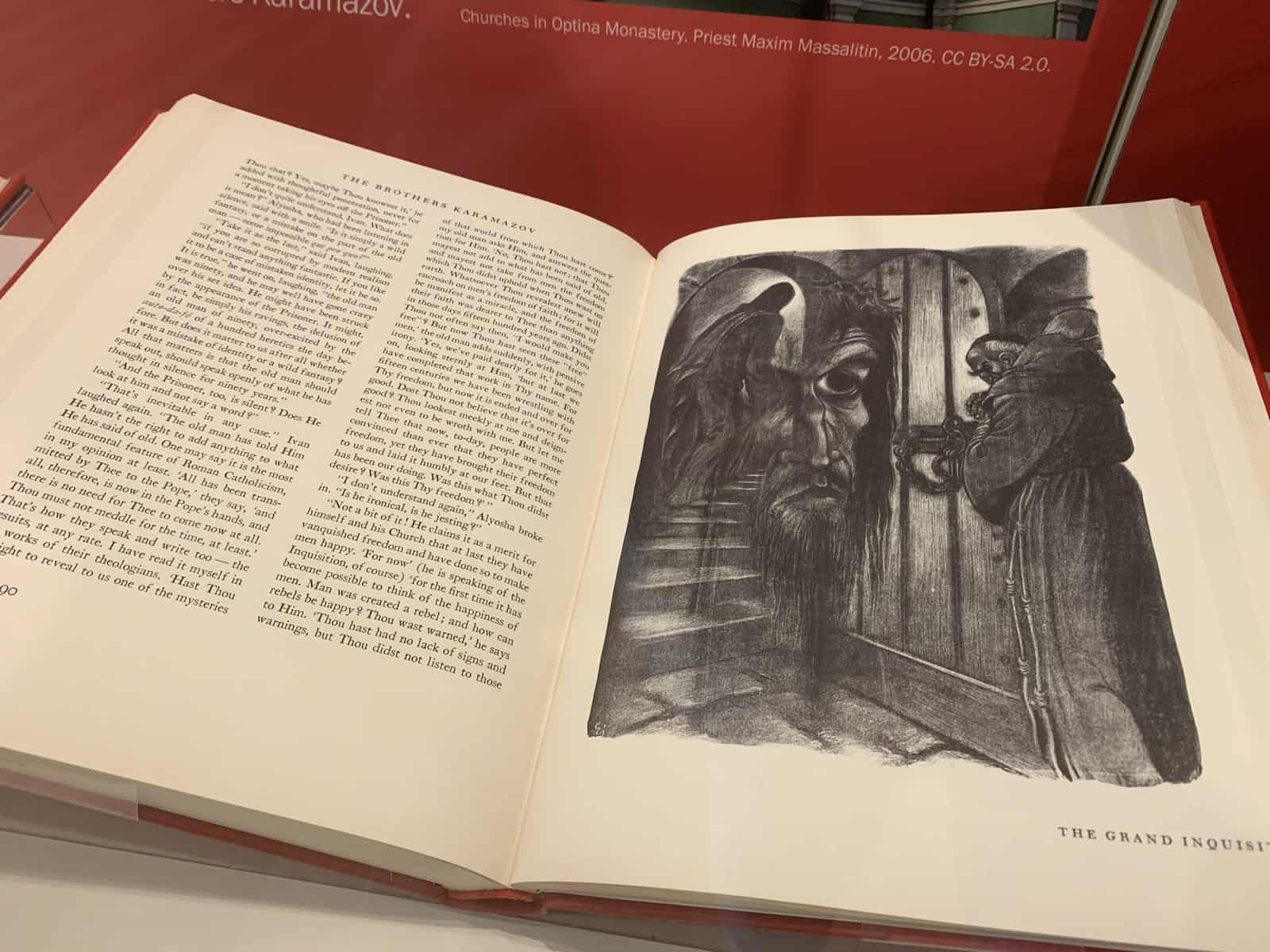
Dostoevsky, Fyodor. The Brothers Karamazov. Translation by Constance Garnett. Introduction by Avrahm Yarmolinsky. Illustrated by Fritz Eichenberg. New York: For the Members of the Limited Editions Club, 1949. Vols. 1 & 2. [x-Collection, FOLIO PG3326.B7 G3 1949] University of Iowa Libraries Special Collections & Archives.
The featured illustration is by Fritz Eichenberg.
“And everyone will be happy, all the millions of creatures, except for the hundred thousand of those who govern them. For only we, we who keep the mystery, only we shall be unhappy. There will be thousands of millions of happy babes, and a hundred thousand sufferers who have taken upon themselves the curse of the knowledge of good and evil. Peacefully they will die, peacefully they will expire in your name, and beyond the grave they will find only death. But we will keep the secret, and for their own happiness we will entice them with a heavenly and eternal reward.” – The Grand Inquisitor, The Brothers Karamazov
In Dostoevsky’s The Brothers Karamazov, the parable of the Grand Inquisitor is told by atheist brother Ivan to his younger brother Alysha, who is a novice in a monastery. Ivan attempts to undermine Alysha’s faith in God’s benevolent love by creating the character of the Grand Inquisitor, who confronts Christ and accuses him of burdening humanity with free will. Christ remains silent during the entire soliloquy and quietly leaves after giving the Inquisitor a kiss.
The Inquisitor preaches that people must be free of conscience and ruled for their own good, because their free will leads them to unwise and unenlightened choices that cause pain and death. Humanity does not deserve freedom because it misuses it, thus placing itself beyond redemption. The Inquisitor intends to alleviate all pain and send people to their death through a happy path, but without the freedom of choice and comprehension.
This parable in The Brothers Karamazov serves as an overarching philosophical statement that bridges the works of Dostoevsky: human suffering is unavoidable and destructive, but without self-conscious realization of the nature and implications of our freedom, we cannot fulfill our potential as human beings. Totalitarian structures that promise a life of comfort in return for absolute control and surrender of freedom have multiplied through the 20th and 21st centuries. Looking at the writing of Dostoevsky through the prism of the past 150 years, his warning in Notes from Underground that humanity will “contrive to be born somehow from an idea” was prophetic.
Countless authors have tried to grapple with Dostoevsky’s ideas about human freedom, including Franz Kafka (The Trial, 1925), George Orwell (1984, 1949), and Aldous Huxley (Brave New World Revisited, 1958).
According to literary critic George Steiner, Dostoevsky remains the “eternal ‘disturber,’ the disseminator of freedom and tragedy, the man to whom the resurrection of an individual soul was more important than the material progress of an entire society.”
Text by Dr. Anna Barker for From Revolutionary Outcast to a Man of God: Dostoevsky at 200, University of Iowa Libraries Main Library Gallery.
